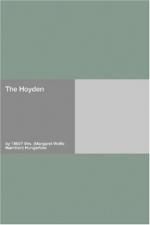There had been a fourth. Margaret loved him! Yet he was the only one whom Margaret should not have loved. He was unworthy in all points. Yet, when he went abroad, breaking cruelly and indifferently all ties with her (they had been engaged), Margaret still clung to him, and ever since has refused all comers for his sake. Her face is long and utterly devoid of colour; her nose is too large; her mouth a trifle too firm for beauty; her eyes, dark and earnest, have, however, a singular fascination of their own, and when she smiles one feels that one must love her. She is a very tall woman, and slight, and gracious in her ways. She is, too, a great heiress, and a woman of business, having been left to manage a huge property at the age of twenty-two. Her management up to this has been faultless.
“Now, how can I help you?” asks she, looking at Lady Rylton. “What is distressing you?”
“Oh! you know,” says Mrs. Bethune, breaking impatiently into the conversation. “About Maurice and this girl! This new girl! There,” contemptuously, “have been so many of them!”
“You mean Miss Bolton,” says Margaret, in her quiet way. “Do you seriously mean,” addressing Lady Rylton, “that you desire this marriage?”
_ “Desire_ it? No. It is a necessity!” says Lady Rylton. “Who could desire a daughter-in-law of no lineage, and with the most objectionable tastes? But she has money! That throws a cloak over all defects.”
“I don’t think that poor child has so many defects as you fancy,” says Miss Knollys. “But for all that I should not regard her as a suitable wife for Maurice.”
Mrs. Bethune leans back in her chair and laughs.
“A suitable wife for Maurice!” repeats she. “Where is she to be found?”
“Here! In this girl!” declares Lady Rylton solemnly. “Margaret, you know how we are situated. You know how low we have fallen—you can understand that in this marriage lies our last hope. If Maurice can be induced to marry Miss Bolton——”
A sound of merry laughter interrupts her here. There comes the sound of steps upon the terrace—running steps. Instinctively the three women within the room grow silent and draw back a little. Barely in time; a tiny, vivacious figure springs into view, followed by a young man of rather stout proportions.
“No, no, no!” cries the little figure, “you couldn’t beat me. I bet you anything you like you couldn’t. You may play me again if you will, and then,” smiling and shaking her head at him, “we shall see!”
The windows are open and every word can be heard.
“Your future daughter-in-law,” says Mrs. Bethune, in a low voice, nodding her beautiful head at Lady Rylton.
“Oh, it is detestable! A hoyden—a mere hoyden,” says Lady Rylton pettishly. “Look at her hair!”
And, indeed, it must be confessed that the hoyden’s hair is not all it ought to be. It is in effect “all over the place”—it is straight here, and wandering there; but perhaps its wildness helps to make more charming the naughty childish little face that peeps out of it.




